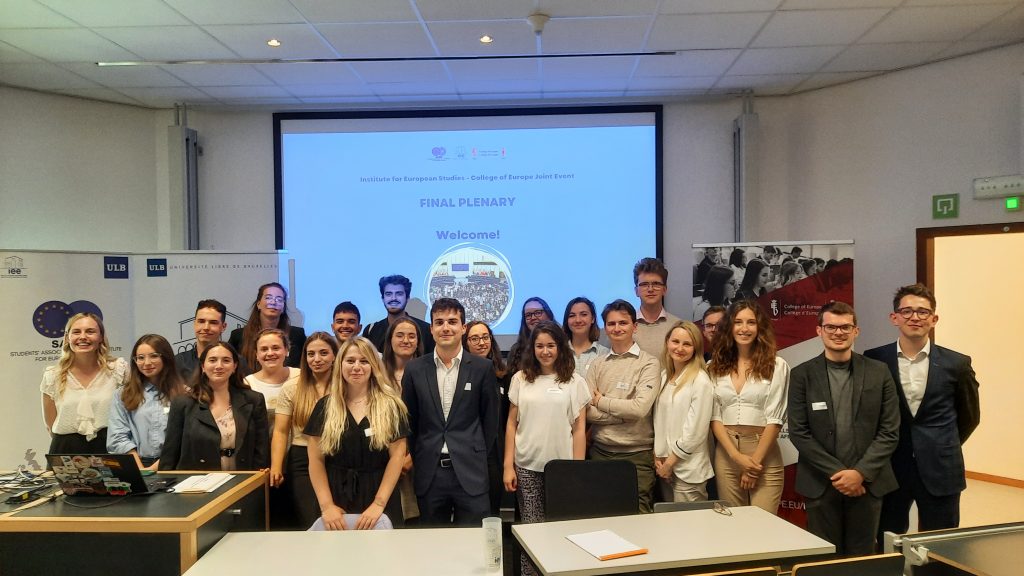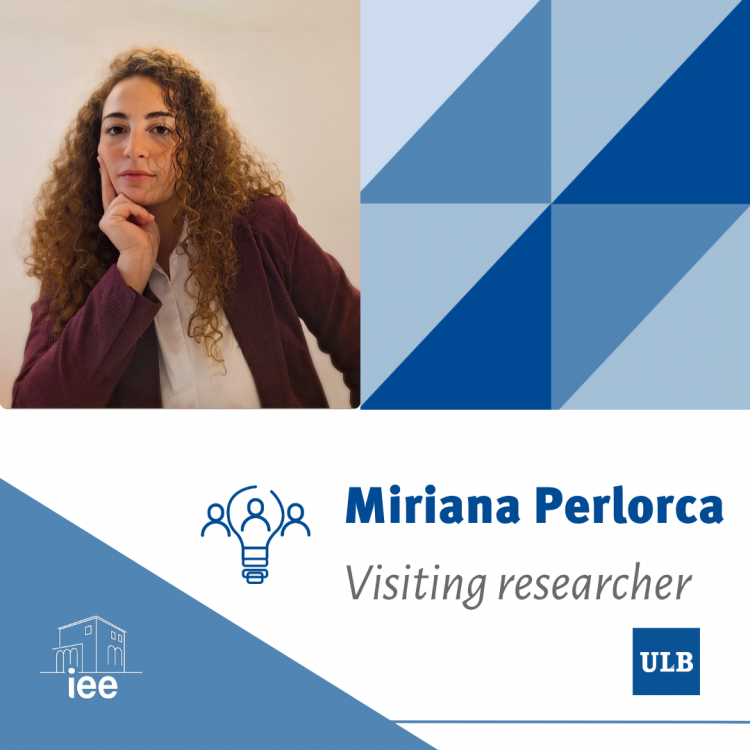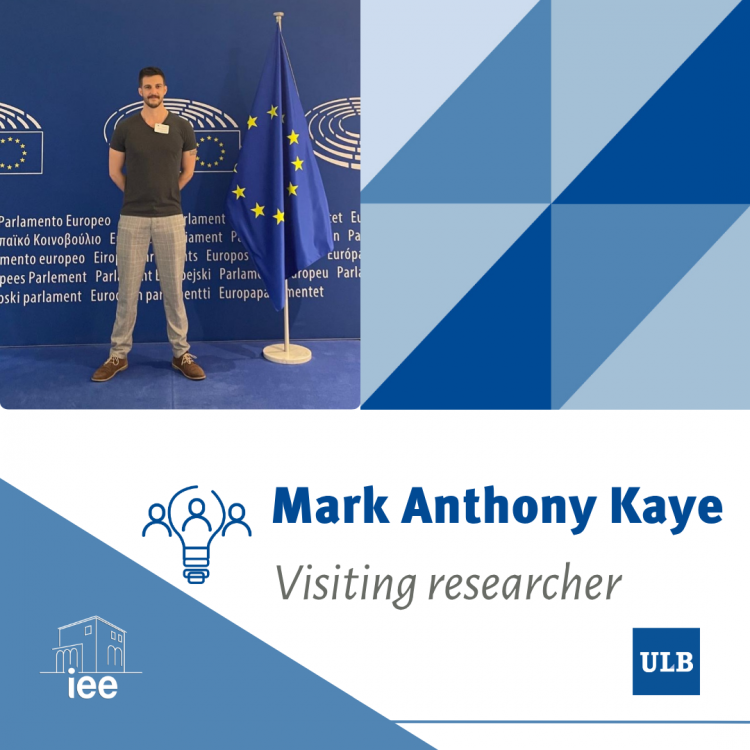On 20 June 2022, students from the Institute for European Studies (IEE) and the College of Europe met for the second day of debate on the future of Europe. After a first meeting in December in Bruges, the IEE was pleased to welcome both delegations in Brussels to continue this second edition of the joint activity between the two institutions, which was successfully established last year, under the coordination of IEE President, Ramona Coman and CoE Director of the Department of European Political and Governance Studies, Olivier Costa.
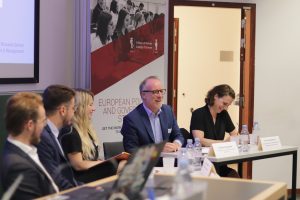
After welcome words by Professor Ramona Coman, President of the IEE, and Michele Chang, Director of the Transatlantic Affairs Programme in the Department of Policy and Governance Studies of the College of Europe, the morning was devoted to an exchange on the Conference on Future of Europe. It brought together prominent speakers such as Ward Den Dooven, working within the Egmont Institute and the Democratic Society network, Guillaume McLaughlin, co-head of the Joint Secretariat for the Conference on the Future of Europe of the European Parliament, Gaëtane Ricard-Nihoul, member of the Joint Secretariat for the Conference on the Future of Europe of the European Commission, and Federico Terreni, member of the European International Movement. The diversity of the guests, coming from the academic, institutional and civil society fields, allowed for a rich and relevant exchange on the conclusions and scope of the CoFoE initiative.
The video of the livestream of the conference organized by IEE and College of Europe students is available here
Following a convivial lunch in the IEE gardens, the students of both institutions continued their debates in the following panels:
- The resilience of European societies (dealing with the covid crisis as well as the digital transition).
- Democracy in the European Union (state of the rule of law in Europe linked to issues of legitimacy and education).
- Europe’s place in the world (reflections on neighbourhood and enlargement policies).
- European security and defence policy (mainly on the issues of industrial autonomy and cyber security).
- Migration (reallocation system, border management and integration of migrants into society).
As the debates had already started at the first meeting in Bruges in December, the second working session allowed the exchanges to be refocused on specific themes for which the participants formulated specific recommendations. At the end of the day, during the plenary session, the different groups were able to present their conclusions to their counterparts. All the recommendations as well as a summary of the conference “CoFoE: insights from within with its main actors: academia, civil society and institutions” are available in the report produced by SAIES and the College of Europe student coordinators.
This intense day ended with a cocktail party in the IEE gardens where students shared a festive moment. In view of the success of this second edition, both delegations renewed their wish that the activity be continued in the future.
The student experience
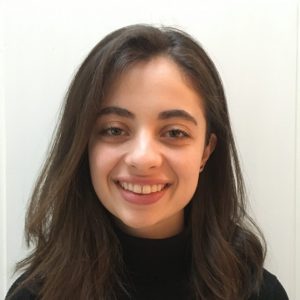 Jeanne FABREGUETTES
Jeanne FABREGUETTES
Currently a student in the European Studies Master’s programme at the Institut d’études européennes, she began her studies at the University of Paris 1 Panthéon – Sorbonne. Holding a double degree in History and Political Science, she completed her studies with an exchange at the Saint-Joseph University in Beirut, which confirmed her interest in geopolitical and strategic issues in the Middle East. Jeanne decided to continue her studies in Brussels, at the IEE, to specialise in European public affairs, while maintaining an increased interest in the European Union’s foreign policy, particularly on diplomatic and energy issues. As President of the Student Association of the Institute of European Studies (SAIES), she organised the second edition of the debate on the Future of Europe, together with her right-hand woman and head of events, Martina Rubino, and Antoine Ichas, coordinator for the College of Europe.
“This challenging exercise between our two institutions is a great opportunity to both fuel a constructive and relevant exchange on very topical and often thorny issues. Having participated in the panel on “Europe’s place in the world” I witnessed the sometimes contrasting reflections and point of views of the participants and the way in which current events, and in particular the war in Ukraine, profoundly changed our discussions between December and June. The European Union is in a constant state of construction, and it seems to me that it would be enlightened to keep casting a critical eye and debating together, by continuing this joint event in the future. Finally, I would like to underline the honour and pleasure I had to meet and collaborate with the students of both delegations, the professors as well as the coordinators and assistants of the College of Europe, the IES and SAIES”.
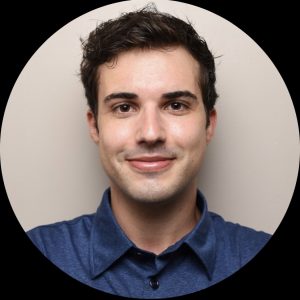 Antoine ICHAS
Antoine ICHAS
Originally from France, Antoine Ichas studied European Political and Governance Studies in the Eliane-Vogel Polsky promotion of the CoE. He wrote his Master’s thesis on the Conference on the future of Europe and the role the European Parliament played to launch a reform of the European Treaties. His key interests are civic participation, especially of youth, and policies related to the green transition and the development of fair societies.
“As a coordinator of the joint activity, it was a pleasure to work with Martina and Jeanne from the IES for the organization of the two rounds of debates and a conference with high-level speakers. It was the occasion to discuss the success, criticism, and follow-up of the Conference on the future of Europe with students from the College of Europe and the IES. During the debates, we tried to replicate the panels of the Conference to make concrete and innovative proposals to tackle the crises faced by the EU and improve its functioning. Personally, this joint event was an opportunity to work on and learn more from topics that I was not familiar with. I also benefited from meeting students from the IES, sharing our interests and views on the EU and I look forward to meeting them again in Brussels”.
